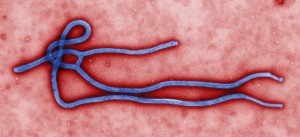 Many of our clients who come forward to file a case under the False Claims Act are motivated by a common desire: to right a wrong. While some people think of corporate fraud as a victimless crime, whistleblowers know it is not. They realize that every business decision impacts a human life – that behind every decision to use a lower-cost, substandard component to build a grenade is a soldier whose life is going to depend on the grenade exploding when needed, that behind every misbranded medication is a child whose life may be forever altered by unknown side-effects, that behind every false promise of higher education is a student crippled by debt.
Many of our clients who come forward to file a case under the False Claims Act are motivated by a common desire: to right a wrong. While some people think of corporate fraud as a victimless crime, whistleblowers know it is not. They realize that every business decision impacts a human life – that behind every decision to use a lower-cost, substandard component to build a grenade is a soldier whose life is going to depend on the grenade exploding when needed, that behind every misbranded medication is a child whose life may be forever altered by unknown side-effects, that behind every false promise of higher education is a student crippled by debt.
While the False Claims Act can be used to expose and correct certain wrongs, not all “wrongs” necessarily results in the submission of false claims. Some wrongs, however, are still so egregious that a whistleblower is willing to come forward and expose the issues in the name of public safety and justice.
Such is the case of Brianna Aguirre, a nurse at Texas Presbyterian Hospital in Dallas, Texas, where Ebola victim Thomas Eric Duncan was treated and where two other nurses have since contracted Ebola after treating Duncan. Last week, Aguirre came forward to expose what she says are substandard protocols to prevent the transmission of Ebola by hospital and CDC employees. Among other issues, Aguirre says that the hospital failed to dispose of the massive medical waste caused by treating an Ebola patient, and CDC officials were in isolation areas with no covering garbs so germs were potentially transmitted to “clean” areas on their clothes or shoes.
After nurses Nina Pham and Amber Vinson contracted Ebola, Aguirre was upset to hear that the nurses were being blamed by the media. The nurses did what they were told, Aguirre has publicly stated, but the hospital and CDC failed them.
It remains to be seen why there were so many errors or oversights, which resulted in Pham and Vinson contracting Ebola. Was it simply a result of a lack of preparation and planning, or was there a cost-benefit analysis conducted at some level, which deemed it too expensive to have all of the necessary protocols in place to prevent disease transmission?
Whatever the cause, Aguirre clearly felt that the only way to right this wrong – to stop the blame being placed on the nurses and expose the internal flaws which led to their illnesses – was to publicly blow the whistle and call for changes. Yet, it still remains to be seen whether she will be lauded as a hero for breaking the silence in hopes of getting a better system in place, or whether she will face retaliation for speaking out of turn at the hospital’s and CDC’s expense.
There are some state-level whistleblower laws that may protect someone like Aguirre from retaliation, but they are not nearly as strong as the protections associated with the False Claims Act. In Texas, for example, the Texas Whistleblower Act (Tex. Code 554.001) protects only public employees who report certain violations by a governmental agency or another public employee to the appropriate law enforcement authority. There are additional protections for very specific situations such as registered nurses reporting incidence of poor nursing to the State Board of Nurse Examiners or physicians reporting the misconduct of another physician to the State Board of Medical Examiners. But, by and large, Texas whistleblowers may not be protected if they are retaliated against for their efforts.
Some states, like Florida, have more comprehensive whistleblower laws (Fla. Stat. § 112.3187) that protect private citizens in addition to public employees. However, Florida whistleblowers must meet several exacting requirements prior to claiming protection under the law, including providing written notice to the employer about the fraudulent activity, and giving the employer the opportunity to correct the wrong. Each state is different and requires a careful analysis of the law to determine if a whistleblower has any protection under state laws.
Whistleblowers come from all different backgrounds, with different experiences, which lead to their desire to right wrongs. Many times, the fraud involves false claims made to the Government so a law firm specializing in the False Claims Act can help a whistleblower file a qui tam case to expose the fraud. Other times, whistleblowers must seek alternative ways to blow the whistle. These people deserve as much praise and protection as is afforded to False Claims Act whistleblowers for attempting to make the world a safer place.
To contact James Hoyer about a suspected False Claims Act violation, or if you are being retaliated against as a whistleblower, please contact us here or call us toll-free at 1-800-651-2502.


